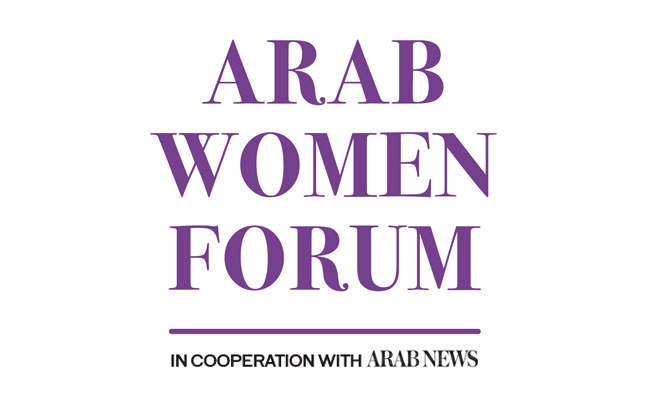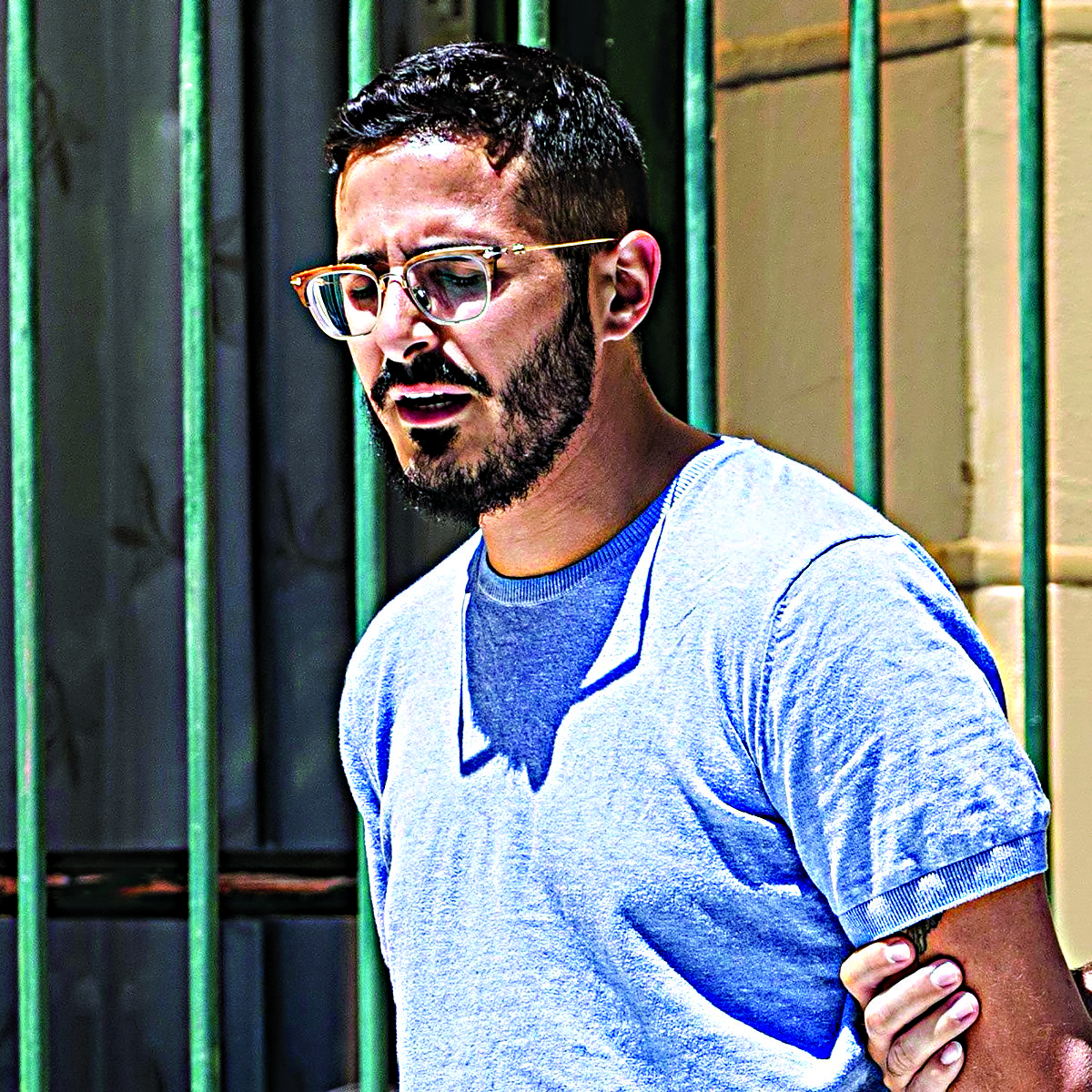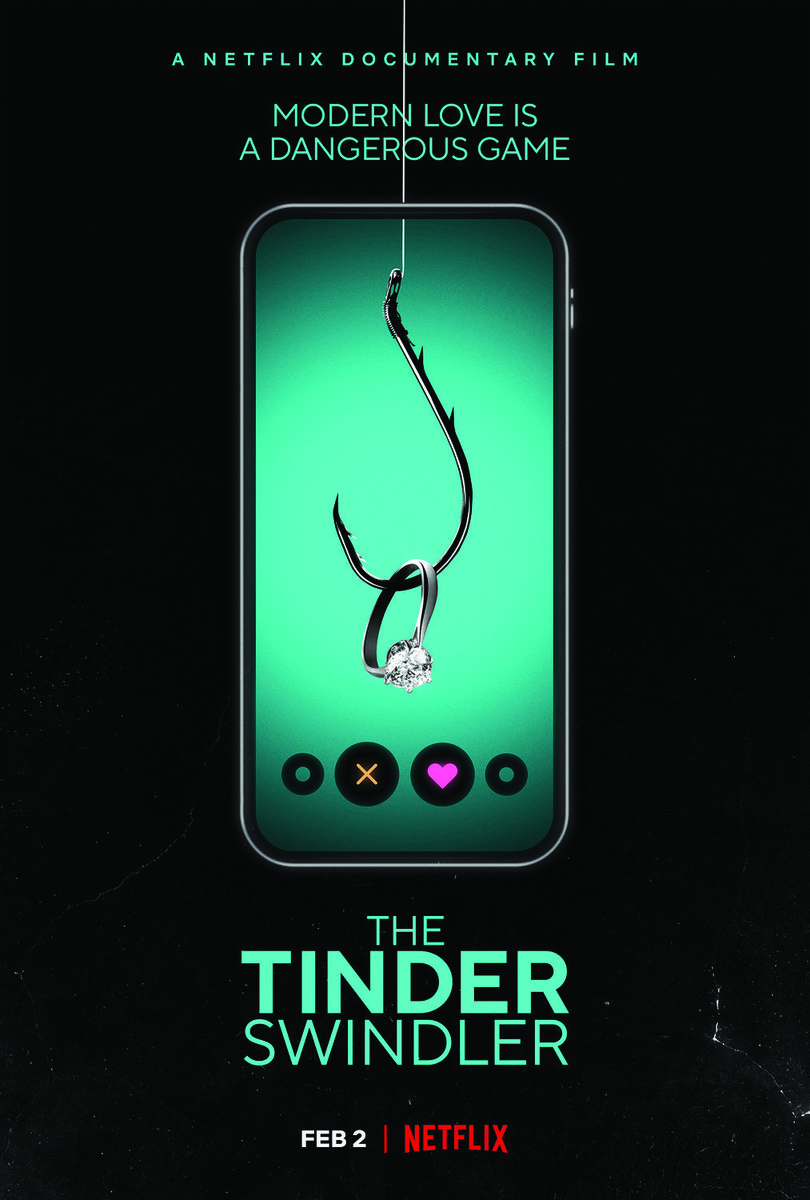DUBAI: Just swipe left. At least that is what many an indecisive Tinder user may have found themselves doing after the notorious case of the dating app fraudster dubbed the “Tinder Swindler” came to light in an explosive Netflix docu-drama earlier this year.
Despite being defrauded by the conman, Norwegian TV personality Cecilie Fjellhoy and Swedish business owner Pernilla Sjoholm are hitting back by speaking up about their experience.
The women will appear during a special keynote address titled “When women fight back” at the Arab Women Forum, held in partnership with Arab News, at the Palazzo Versace Dubai on May 17.

“It was very traumatic,” Sjoholm told Arab News, reflecting on her experience ahead of Tuesday’s forum appearance. “It wasn’t only about the money you have lost. You have lost the way you viewed yourself, how you viewed everything.
“I used to think about fraud as: ‘Oh my God, who gets defrauded? You must be of lower intelligence or something.’ And I’m very embarrassed to say this today, because of what I lost.
“I was 31 years old, and it was not the way I would have imagined my life to be. To lose everything. You also lose your soul.”
Based on an expose by Verdens Gang, a Norwegian tabloid newspaper known under the abbreviation VG, the program unearthed the story of Israeli national Shimon Hayut, who allegedly posed on the dating app Tinder as Simon Leviev, claiming to be the son of a diamond mogul.
Hayut notoriously charmed women and persuaded them to loan him money, swindling an estimated $10 million from people across the globe.
According to reports, Hayut followed a pattern. After matching with unsuspecting women on Tinder, he would take them on a lavish first date and slowly build up a relationship, all the while dating other women.

Israeli national Shimon Hayut used the Tinder app to scam unsuspecting victims.
Eventually, the fraudster would confide in them that a nefarious set of “enemies” were after him, persuading the women to send him money on the understanding that he would quickly pay them back.
After a nifty piece of counter-swindling by one woman, Ayleen Koeleman, who had been alerted to the con by the expose in VG, Hayut was arrested in 2019 and sentenced to 15 months in prison for fraud in Israel.
However, Hayut served only five months behind bars before being released. He has never been charged for crimes related to Fjellhoy and Sjoholm, and denies their claims of fraud.
And the story does not end there. In a shocking twist, Hayut is now pursuing a Hollywood career, while the women he targeted remain in debt to this day.
“We were very disappointed,” said Sjoholm. “Unfortunately, there is no extradition from Israel to Europe. So he’s still there.

From 2017 to 2019, Shimon Hayut used the dating app Tinder to swindle about $10 million from women around the world. (Shutterstock)
“We don’t think that they handled this case properly and they should have. And, unfortunately, that is the way it happens in a lot of fraud cases. I mean, I just know the numbers in Sweden. They drop 96 percent of all the cases they get, because they have too much.”
Instead of consigning themselves to a life of victimhood, both Sjoholm and Fjellhoy are working to inspire women across the world to identify and fight back against romance scams.
“We have talked about a lot of the shame that surrounds fraud and I think that it’s so important to stand up and say that this could happen to anyone,” said Sjoholm.
“Because it’s so common that fraudsters get away with fraud due to people being scared of sharing their story. So I definitely know that we helped a lot of people and hopefully will help a lot of people in the future as well.”
According to Action Fraud, the UK’s national reporting center for fraud and cybercrime, the majority of victims of romance fraud are women. Sjoholm believes women are specifically targeted for their perceived emotional vulnerabilities.
“I think that we women are more emotional people,” she said. “These fraudsters work a lot with emotions, because it is a form of emotional abuse.”
The Tinder Swindler case has raised many questions about what responsibility dating apps ought to hold for romance scams and what more they could be doing to safeguard users.
“I don’t feel like there was a lot that the dating app could have done in our case,” said Fjellhoy, also speaking to Arab News ahead of the forum.
“I feel like just doing proper identity checks so you can’t catfish someone, for example. We see that they have some, but I feel like fraud is much larger than just what happens on the dating app. They take you away from the dating app. It’s just one avenue of many that fraudsters are using.”

Beyond dating apps tightening their safeguards, there have also been calls to improve awareness in schools so that young people are better equipped to spot catfishing — the use of fake accounts to lure victims — and romance scams.
“If you’re going to educate young people, maybe teach them more about what kind of different people exist in the world,” said Fjellhoy.
“There are some people that don’t have empathy, there are psychopaths and narcissists who will take advantage of your empathy and those types of things. But I think it’s important to not put too much emphasis on us as victims as well.”
Indeed, there is a danger of victim blaming if the responsibility for spotting scammers is placed on users, when the onus ought to be on clamping down on fraudsters.
“We didn’t do anything wrong here,” said Fjellhoy. “And fraud will always happen. But, when fraud happens, how do we, as a society, talk about how to stop it?”
Nevertheless, there are several red flags that dating app users can look out for, says Sjoholm, including “love bombing” — the practice of lavishing someone with attention or affection with a view to influence or manipulate them.
However, Sjoholm believes that the very nature of social media makes it difficult to determine the truth about someone. “When it comes to social media, it is entirely about everyone wanting to show off their best side,” she said.
“Everyone wants to show off the good parts. When it comes to social media, I would say that 95 percent is just fraud in general.”
The mental health repercussions of romance fraud cannot be understated, as victims grapple with both the financial fallout and intense feelings of shame. “Regarding how your mental health is when you realize you’ve been defrauded, I think, for me, why I felt so low that I ended up in a psychiatric ward is that no one took you seriously,” said Fjellhoy.
“And I feel like, for example, you go to the police and they just brush you off. And I tried to contact the banks and they told me: ‘Well, you still need to pay down the loans.’ And you’re still mentally low. It’s double — emotional and economic. You see no way out.”
As a result of her ordeal, Fjellhoy established the Action Reaction Foundation to focus on the mental health challenges of survivors and to lobby for stronger laws as well as policies to protect victims.
One of the lasting effects of the ordeal is an inability to trust others easily. “I’m still having trouble with trust,” said Sjoholm.
“I have more good days than I have bad days. But even on my good days, when someone does something very nice toward me, I can sometimes feel like there’s an agenda behind it. That someone is there to hurt me.
“I can still socialize. I can meet new people, but I’m having a very hard time to really talk to people. I don’t want to take away trust. You should be trusting people, you should be helping people, because that is what makes this world better. But, of course, this has been a tremendous trauma.”
For Fjellhoy, it is also about having trust in the system to protect victims and take their claims seriously.
“That the police will be there to protect you, that if you go to the bank, and you’re saying you’re being defrauded, you can get some peace and quiet to figure things out, that they will give that to us,” said Fjellhoy.
“Just so many things that could have made everything that happened afterward much easier, which would have made the fight easier.”
For others who have fallen victim to romance scams, Fjellhoy’s advice is to speak up.
“Please report it to the police, no matter what,” she said. “We know that it hasn’t gone our way. But they need to know about all cases so they can see how big it actually is.
“Please, report it.”




















